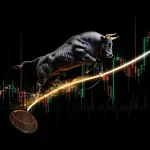Stock Market Timing: The Art of Seizing Opportunity and Escaping Danger
Updated Oct 1, 2024
While many individuals and experts argue that market timing is impossible, the answer to this question is not a simple yes or no. It can be likened to the changing seasons. We generally know when winter, summer, fall, and spring will begin, but predicting the exact transition from one season to another is impossible. The same principle applies to market timing.
If one aims to predict market turning points precisely, they may occasionally succeed, but their track record is likely to be poor overall. Predicting market turning points precisely is often an exercise in futility and is best avoided, particularly for those who wish to avoid significant losses.

Stock Market Timing: Unveiling the Seasonal Patterns of Investment Success
While it is generally known when winter, fall, spring, or summer will approximately begin, predicting when summer will transition into fall is impossible. This analogy can be applied to market timing. Rather than pinpointing the precise top or bottom of the market, we focus on identifying signs of bottoming and topping patterns, similar to observing changes in the weather. By gathering this information, we can assess how close one market phase is to transition into the next. Embracing this approach makes market timing a feasible and attainable endeavour.
Perhaps the first thing humans should learn is simple money management skills. After all, you cannot run without learning to crawl and walk.
Researchers have demonstrated that humans are no better than monkey’s when it comes to managing money (Kahneman, Santos et al.). Kahneman asserts in his book, Thinking Fast & Slow that monkeys with dart board are actually better than humans trying to manage money on wall street.
Intriguing quotes from a Stock market Timing Book
Individuals specialising in studying and investing time in a particular topic tend to produce less accurate predictions than random chance. It challenges the belief that the future is unpredictable, highlighting how our ability to explain the past quickly undermines this notion. The tendency to create coherent narratives of past events makes it difficult to acknowledge the limitations of our forecasting abilities. Financial pundits often exploit our inclination to find hindsight explanations, further fueling overconfidence in our predictive skills. The illusion of understanding the past fosters a sense of assurance in our ability to foresee the future..”
The Role of Mass Psychology in Stock Market Timing
In investing, understanding mass psychology is vital for mastering stock market timing. Instead of relying solely on financial commentators or technical indicators, grasping the collective mindset driving market movements is crucial. Emotions, rather than numbers alone, significantly influence market trends.
Successful investing involves observing and interpreting collective behaviour. Historical trends show that the general public often misjudges market conditions, either jumping in too late or holding on too long. For instance, major market bubbles, like the dot-com and housing bubbles, were largely driven by widespread investor emotions rather than fundamentals.
To succeed, it’s essential to analyze crowd psychology first. Market movements—whether reaching new highs or plummeting to lows—reflect how people react to events. Collective behaviour shapes market trends, making it crucial to anticipate these actions to make informed predictions.
Why Many Investors Struggle
Many investors fail due to their backward approach. They often focus on understanding market behaviour first and then try to predict crowd actions. In reality, the effective strategy is to observe the crowd’s behaviour and use that information to anticipate market reactions. For example, during periods of extreme market fluctuations, understanding the crowd’s emotional state can help in making more accurate predictions.
Technical Analysis and Mass Psychology
Technical analysis is a cornerstone of market research, relying on price charts and indicators to identify trends and make predictions. However, it often overlooks the psychological factors that drive market behaviour. Combining technical analysis with an understanding of mass psychology can create a more robust investment strategy.
Technical analysis uses tools like moving averages, the Relative Strength Index (RSI), and Bollinger Bands to forecast future market movements. For example, during the 2008 financial crisis, technical indicators showed severe overbought conditions, suggesting a market correction. But technical analysis alone couldn’t fully explain why the market crashed.
The Missing Piece: Mass Psychology
Mass psychology dives into why people act the way they do. It examines emotions like fear, greed, and herd mentality, which can drive market extremes. Robert Shiller, a Nobel laureate in economics, has emphasized that understanding psychological factors is crucial. His research highlights that bubbles and crashes are often fueled by collective irrationality rather than just market fundamentals.
Combining Both Approaches
Integrating technical analysis with mass psychology can provide deeper insights. For instance, during the dot-com bubble of the late 1990s, technical indicators showed a strong uptrend in tech stocks. However, analyzing mass psychology revealed an overconfidence in tech innovations, leading many investors to overlook potential risks. Recognizing this disconnect could have helped investors avoid significant losses.
By combining technical indicators with an awareness of emotional trends, investors can better navigate market conditions and make more informed decisions.
Understanding Market Trends
Various factors influence market trends, but mass psychology plays a critical role in shaping these trends. Emotional drivers such as fear and greed can create significant market movements and provide opportunities for savvy investors.
Fear and greed are powerful forces in the market. During the 2008 financial crisis, fear led to a massive sell-off, driving stock prices down. Conversely, during the housing bubble of the mid-2000s, greed drove housing prices to unsustainable levels.
A renowned economist, Paul Samuelson noted that “market sentiment often overwhelms rational decision-making.” This sentiment can lead to market bubbles and crashes. For example, the extreme optimism of the 2000 dot-com bubble led many investors to pour money into unproven tech companies, driving prices to unsustainable levels before a sharp correction.
Analyzing Emotional Influences
To harness these trends, investors need to understand the emotional state of the market. For example, during periods of market euphoria, such as the tech boom, prices may be driven higher than justified by fundamentals. Recognizing when greed drives the market can help investors avoid buying at inflated prices.
Investors can identify trends and make strategic decisions by analyzing the emotional drivers behind market movements. This approach allows for better anticipation of market shifts and potential opportunities.
Mastering the Market
Mastering market timing involves understanding and navigating the emotional extremes that drive market movements. Historical market crashes provide valuable lessons on how emotional extremes can signal investment opportunities.
Events like the 1987 Black Monday crash, the 2003 tech bubble burst, and the 2007 housing crash demonstrate how emotional extremes can create opportunities. During these periods, market sentiment swung between extreme optimism and pessimism, presenting opportunities for astute investors.
For example, after the 2003 tech bubble burst, the market experienced a period of extreme pessimism. Investors who understood mass psychology saw this as a buying opportunity and made substantial gains as the market recovered.
Strategic Decisions Based on Mass Psychology
Although perfect timing is challenging, understanding mass psychology can improve decision-making. During the 2007 housing crash, investors who recognized the signs of widespread panic and fear could have positioned themselves advantageously, buying undervalued assets and reaping the rewards as the market stabilized.
Investors who master the interplay of mass psychology and market trends can better navigate market shifts, making strategic decisions that capitalize on emotional extremes. Combined with technical analysis, this approach enhances the ability to identify opportunities and mitigate risks, leading to more successful investing strategies.
Key Strategies for Investors
1. Contrarian Investing: Contrarian investors take positions against prevailing market sentiment. They look for opportunities where crowd emotions have caused asset prices to deviate from their true value. By analysing market conditions and fundamentals, contrarian investors can find undervalued or overvalued assets.
2. Rational Decision-Making: Effective investment decisions involve thorough research and analysis. This includes evaluating financial indicators, market trends, and underlying asset price factors. Rational decision-making helps avoid impulsive actions driven by emotions.
3. Long-Term Perspective: Successful investors often adopt a long-term view. They recognize that short-term market fluctuations can create buying or selling opportunities but focus on the underlying value of their assets. Maintaining this perspective allows investors to withstand market volatility and benefit from long-term growth.
4. Risk Management: Contrarian investing involves risks. A solid risk management strategy is essential, including portfolio diversification, setting stop-loss levels, and preparing for potential downsides. This approach helps protect capital and mitigate losses.
Mastering mass psychology alongside strategic risk management enhances investment success. By understanding and navigating market sentiment, investors can position themselves advantageously and achieve better results.
Now, let’s delve into this scenario against a historical backdrop, showcasing how, in 2019, we strategically seized opportunities amid crowd uncertainty. While chaos reigned, we confidently entered, securing prime stocks.
Stock Market Timing Update Aug 2019
The masses complain about better prices, and when their wish comes true, they panic and flee to the hills, which they call investing. They oscillate between misery and euphoria and have dangerously short lifespans.
Now that we are moving to the era of negative rates, central bankers will become even more aggressive in attacking their respective currencies.
To determine the trend, we examine the data from various angles and focus on the most critical data. News ranks right at the bottom regarding value; sentiment ranks at the top. Fiat money has compounded all the problems you see in the world by a factor of at least 100. All these problems you see today, immigration, wars, poverty, etc., directly result from Central Bankers inflating the money supply.
Nothing changes, and that is why the masses are destined to lose. If you examine every single bubble in history, the storyline is the same. If you are a new subscriber, this is the most important lesson you need to grasp. This is mass psychology in action; never follow the masses unless you are looking for a quick end. Market Update Aug 8, 2019
Anything I’ve ever done that ultimately was worthwhile… initially scared me to death.
Betty Bender
Read, Learn, Grow: Other Engaging Articles You Shouldn’t Miss













